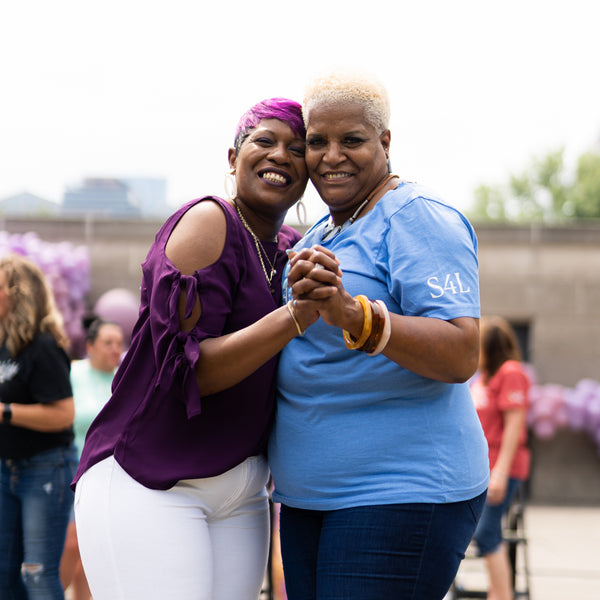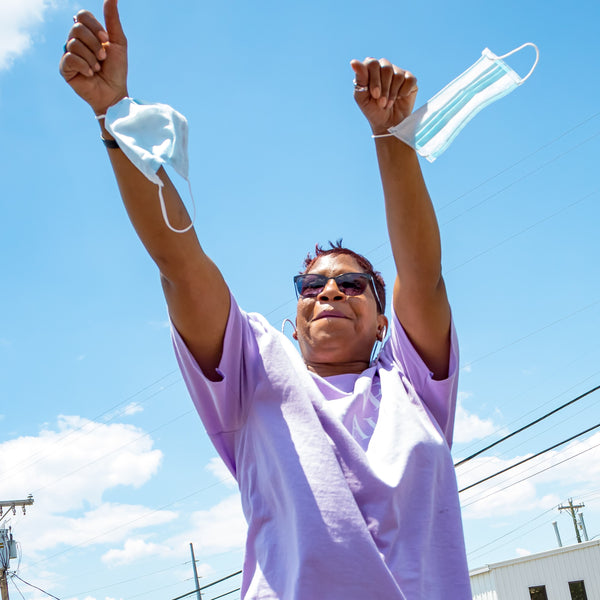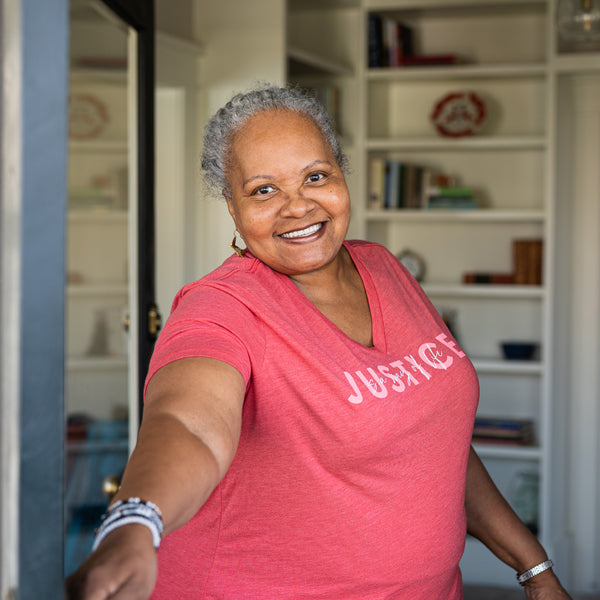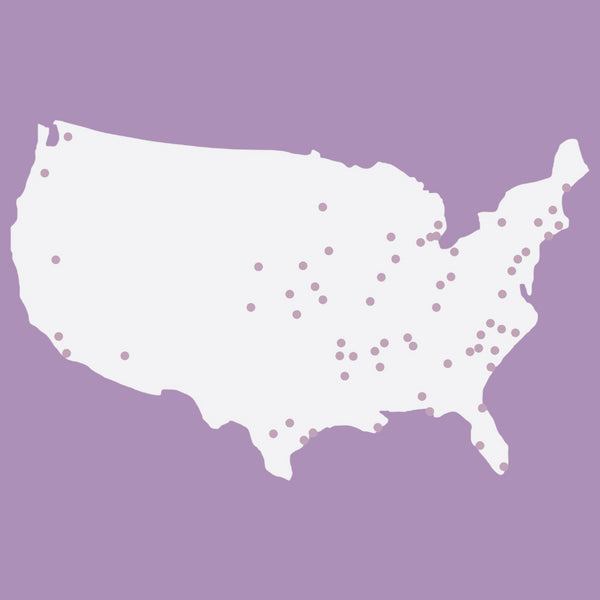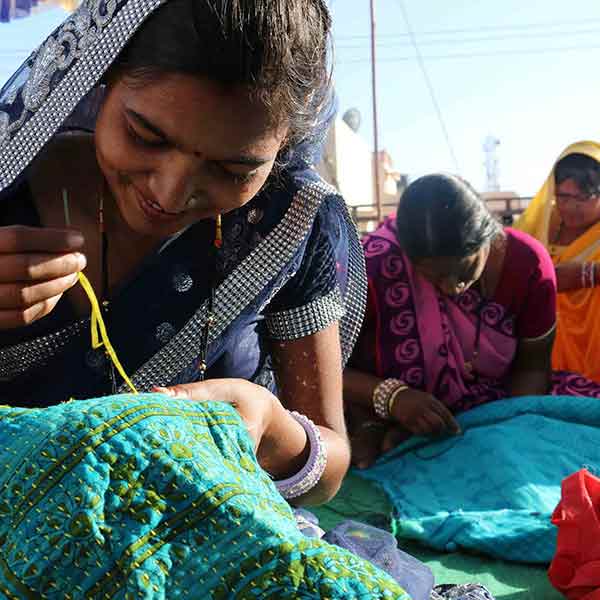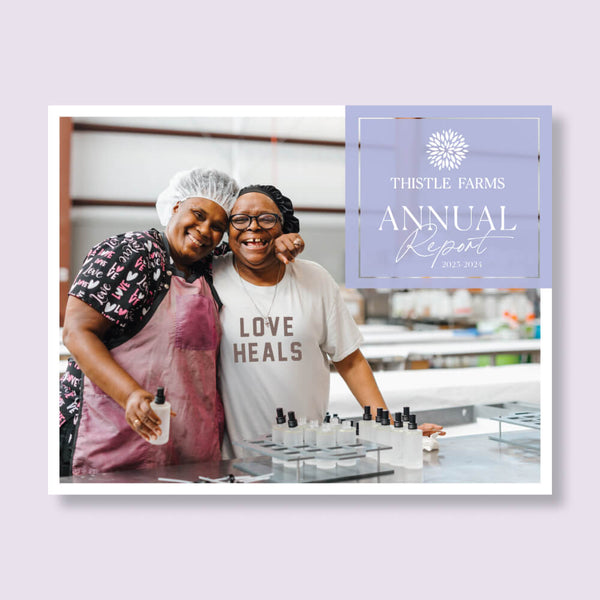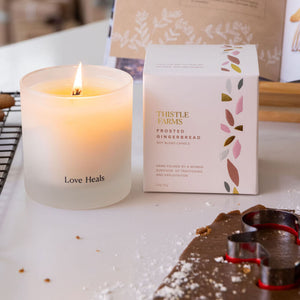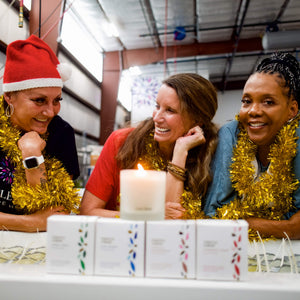Thistle Farms Job Readiness Program Grows Alongside Opportunities
After establishing safe housing and a pathway to healing for each woman who enters the Thistle Farms Residential Program, the next step she makes is toward meaningful employment in one of our social enterprises. That's where our Job Readiness program comes in.
When we first launched the Thistle Farms social enterprise in 2001, the goal was simply to employ women survivors to give them work experience - but it soon became apparent that this was not enough.
A key component in the survivors’ success has been the opportunity to gain soft skills relevant to the workplace such as time management, conflict resolution, and workplace etiquette, as well as providing job training.
Why Job Readiness is Necessary
Coming from a history of trauma, homelessness, and addiction carries with it additional challenges that many others don’t face. The experience of trauma makes moving into new jobs and learning new skills a stressful experience, and dealing with workplace challenges can exacerbate trauma responses in those who have had to operate more in survival mode than in teams.
Additionally, securing employment when one has a history of incarceration and homelessness, possibly on top of a lack of consistent past employment, can be nearly impossible. People who have previously been incarcerated experience unemployment at a rate of 27%, which is higher even than the Great Depression and rates of unemployment among people experiencing homelessness is estimated to be between 57% and 90%.
Over the last 2 years, Thistle Farms has worked to build a formalized job training program that helps guide women survivors through the process of re-entering the workforce and dealing with the effects of trauma along with learning new skills and coping with workplace stressors.
Job Readiness 1.0
Within the first 90 days of entering the residential program, women begin a Job Readiness course that is targeted to building the confidence and skills needed to begin working in teams at one of our social enterprises such as our Body & Home manufacturing facility, The Café at Thistle Farms, or The Shop. All cohorts begin work in the manufacturing center and can expand their opportunities throughout the organization.
The Job Readiness program is structured to help build the 4 major core competencies needed to re-enter the workforce (with some women even entering formalized employment for the first time) and build both soft skills and transferrable hard skills that can be utilized across various industries.
Those four core competencies are: Professionalism, Teamwork and Building Community, Self-Discovery, and Personal Development, and Basic Digital Literacy. These topics are taught in formalized education, through hands-on training and with visiting specialists. The topics are paired with weekly job shadowing as residents learn the skills for the roles that they will fill in manufacturing.
At the graduation ceremony at the end of the 7-week program, each resident expresses what she learned from the program, what she is most looking forward to as she moves into the next phase of the program, as well as general reflections on her time and her hopes for the future.
Job Readiness 2.0
Once survivors have been working for a year, they are often ready to take on new challenges and explore their career opportunities. Job Readiness 2.0 provides a path to see what else might be possible, both within and outside of Thistle Farms.
This program focuses on building upon the skills and confidence learned in the first phase of Job Readiness and the year of work experience to build a more long-term career pathway. For this program we have partnered with Viable Inc, a consulting firm that specializes in career pathway mapping for survivors. In working with Viable, residents engage in aptitude testing and skills assessments to establish career goals.
The program strives to build a pathway to achieving long-term financial freedom and to expand awareness of opportunities for program participants that exist both inside and outside of Thistle Farms. Job Readiness 2.0 includes career navigation, occupational therapy, job shadowing, and further professional development. This phase of Job Readiness lasts for 12 weeks, and the program is offered twice a year.
Since the program launched in 2022, we have seen 36 women over the course of 8 cohorts graduate from Job Readiness 1.0, and 8 women over the course of 2 cohorts complete from Job Readiness 2.0. We are so excited to continue cheering on these remarkable women for years to come!
Starting Spring 2024, the Job Readiness Program will move into a newly built loft space at Thistle Farms' Body & Home manufacturing facility, providing more classroom space and more hands-on opportunities for each cohort to engage in job shadowing and training during their 7-week program.
